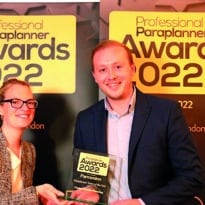Kat Mock talks to Rob Kingsbury about starting up her new outsourced business, Unity Paraplanning, and the challenges and practicalities involved
Kat Mock had been mulling over whether or not to start an outsourced paraplanning business for some time before she made the commitment to do so. “I’d had plans in my head for a while, thinking if I did it what name would I call it, what systems would I use, how would I get clients, and each little question took me further towards a workable plan,” she says.
“I love paraplanning, writing reports and working out all the technical stuff, but I also like getting involved in industry projects. So, part of the reason to set up for myself was to do the job I love, while having the flexibility to get more involved in the profession as well as maintain a work/life balance, which is difficult to do when you’re employed by someone else.”
The catalyst itself, she says, was events in her personal life, “which made me think, ‘just get up and do it’. If I’m good at my job, if I care about what I’m doing and I’m good at getting things done, then people will want me to do a good job for them and they will keep coming back.”
An invaluable part of the journey, Kat says, was talking to people about the possibilities. “I spoke to in-house and outsourced paraplanners, I had a great conversation with a guy who runs a local coffee shop about how he started his business, what to expect in my first year and all the things he found he hadn’t thought about; it was really great advice.”
“I also talked to people I knew wouldn’t be positive about it, so I could be better prepared by trying to cover all the possible outcomes.
“The amount of people who have helped me with ideas and feedback has been insane.
“But if there was one piece of advice that really stuck it was to go for it, because if I don’t get it right immediately, I can change it. It’s going to be a learning curve. I was told not to worry if four months in things aren’t as I envisaged because it’s an exploration; the early days are about finding out what’s going to work for me and for my clients.”
Planning the business
The business plan for Unity Paraplanning evolved over time, she says. “It was organic growth and it changed several times. Ultimately, there were key questions I asked myself:
- What’s everything I need to do?
- What do I need to do first?
- Which systems will I need?
- Where am I going to get clients?
- How will I finance a start-up?
- What are the financial projections?
- What don’t I know how to do?
- Who can I get to help me do those things?
“The last point is really important, because while I could have sat down and resourced everything I needed, having someone else there to help me and point me in the right direction has been immeasurably useful. It has allowed me to spend the time focussing on the other things that needed doing.”
The most valuable tool Kat says she discovered, from a practical perspective, was to put everything down on a timeline. “I wrote out a timeline by month and I put down target actions against every month, leading up to and beyond launch. This not only helped me to see what was needed but it cut up the project into bite-sized chunks that were achievable. Then I colour coded the tasks so I could see what I’d done – that way I could see I was making progress.”
Business model
The name Unity Paraplanning, she says, came from finding that “the best results in financial planning are achieved when people work together using their different skills – it makes it so much sweeter and better. I have good technical skills but I’m not the kind of person who could meet with a client and get the information I need from them. So, Unity reflects that need for people to come together to get the best result for the client.”
Unity Paraplanning is a limited company, with an eye to future growth, but initially Kat is aimed at taking on a limited number of clients and to establish long-term business relationships with them. “For me that means understanding what they want, how they work and what best practice looks like for them; respecting the way they work. I want them to see me as a trusted resource they can rely on to be there when they need me.”
Unity has a broad spectrum offering as well as specialisms in pensions (including DB transfers) and trust work. Contracts will be set up on a retainer basis, for better cashflow planning and business stability, Kat says, but that will not preclude taking on non-retainer work where a firm maybe doesn’t do enough work to warrant it.
She expects the first year to be quite tough and intense. “I know I will have to put in the hours while I get to know my clients and bed in my processes and get to learn theirs.” In terms of the type of client she wants to work with, she says: “I want clients who care about what they are doing, who care about their clients, because that’s what makes the job worth doing.
“In my experience, most planners do care about their clients and really want to do a good job for them. When you’re working with someone like that it makes the job so much easier and enjoyable.”
Start-up equipment and software
(continued… over page)
Page: 1 2





























